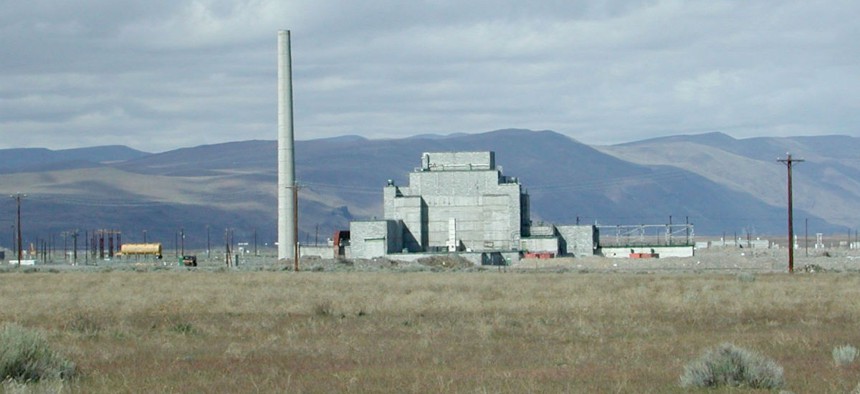Energy Department Steps Up Whistleblower Protections
Contractors will face civil penalties if they retaliate against employees who raise nuclear safety concerns.
Following up on a watchdog’s July critique of its whistleblower outreach efforts, the Energy Department announced new steps to better protect whistleblowers who work for contractors from supervisor retaliation.
“Employees and contractors are at the heart of the Department of Energy's mission areas—and the department is committed to protecting them against retaliation for raising concerns about health, safety and management issues,” wrote General Counsel Steven Croley in an Aug. 4 blogpost.
Noting that both employees and contractors work with “some of the most complex machinery and dangerous materials on Earth,” he stressed that the department has “gone to great lengths” to make it clear that the mission is best served when employees can raise concerns without fear of retaliation.
Among Energy’s tools being strengthened is the Employee Concerns Program, an alternative venue where issues can, in theory, be discussed without supervisors or conflicts of interest.
But now Energy is going further with two new steps, Croley added. “The first is detailed guidance to our personnel responsible for entering into and administering contracts that makes it clear if and when the department will reimburse legal costs in whistleblower cases,” he wrote. “Second, the department is publishing a proposed rule clarifying that the department can assess civil penalties against contractors and subcontractors for retaliating against any employee who raises concerns relating to nuclear safety.”
The moves appear to respond to the report from the Government Accountability Office released at a July 14 press conference showcasing Energy Department contractor whistleblowers Sandra Black and Walt Tamosaitis. Both have claimed retaliation: Black at Energy’s Savannah River facility in Charleston, S.C.; and Tamosaitis at the department’s Hanford Reservation in Washington State. The press event was organized by Sens. Ron Wyden, D-Ore.; Edward Markey, D-Mass.; and Claire McCaskill, D-Mo.
GAO studied 87 whistleblower cases and interviewed officials at 10 sites. The watchdog agency concluded that the department “has infrequently used its enforcement authority to hold contractors accountable for unlawful retaliation, issuing two violation notices in the past 20 years. Additionally, in 2013, in response to proposed revisions to its enforcement guidance, DOE determined that it does not have the authority to enforce a key aspect of policies that prohibit retaliation for nuclear safety-related issues—despite having taken such enforcement actions previously,” it said.
The general counsel said that under Secretary Ernest Moniz, Energy “has redoubled our efforts to implement the Whistleblower Protection Pilot Program by modifying major contracts to make that program applicable to more contractors.”
In addition, “Along with our existing regulations and specific prohibitions against retaliation in contracts, we have robust procedures in place for the investigation of whistleblower claims when employees believe they have been mistreated for raising issues,” he wrote. “In cases where an employer can be shown to have retaliated against whistleblowers, department regulations allow for reinstatement, back pay and reimbursement of reasonable costs such as attorneys’ fees.”
NEXT STORY: Two Decades of GovExec.com




